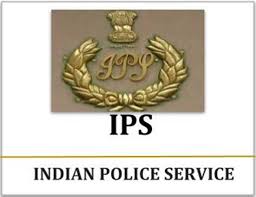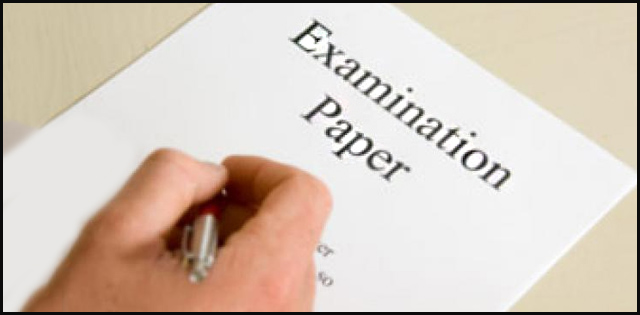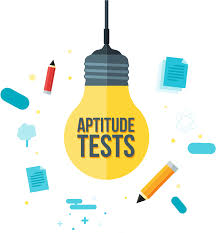UPSC Competitive Exam
Welcome ! Here, you will find the complete UPSC syllabus for the Civil Services Examination conducted by the Union Public Service Commission (UPSC). The Civil Services Examination is widely considered as one of the toughest and the most prestigious examinations conducted in India.
To understand the UPSC exam, one needs to understand the IAS syllabus. This helps to eliminate wasteful efforts like reading unnecessary topics leading to a loss of time and keeps one strictly aligned to the expectations of the UPSC from day one.
UPSC 2021 syllabus [UPSC Civil Services Prelims and Mains] will be released, along with the official notification for the Civil Service Exam in February 2021.
The IAS syllabus can be found at the UPSC official website – https://upsc.gov.in/ or scroll down to download the UPSC syllabus pdf for both Prelims and Mains. Aspirants can also download the IAS Syllabus in Hindi|UPSC Syllabus in Hindi.
There is a common UPSC syllabus pattern for services such as the Indian Administrative Service, Indian Foreign Service, Indian Police Service, Indian Revenue Service (Customs and Central Excise) to name a few. However, different stages of the IAS exam have different syllabi. The UPSC Prelims syllabus focuses on general and societal awareness which is tested by objective-type (MCQ) questions. The UPSC Mains syllabus is much more comprehensive as this stage comprises nine theory papers.

2) Civil Services Aptitude Test (CSAT)
1. General Studies (Generally conducted between 9:30 AM and 11:30 AM)
Syllabus for GS Paper (Prelims Paper I)
Phase 2: UPSC Mains Exam (1750 Marks)
In case a candidate does not qualify in these language papers, then the marks obtained by such candidates will not be considered or counted.

IAS Eligibility Overview
IAS Eligibility – UPSC Age Limit
As per the Civil Services Age Limit, the candidate Should be between 21 and 32 years, as on 1st August 2020 (for the UPSC CSE 2020), i.e., he must have been born not earlier than 2nd August 1988 and not later than 1st August 1999.
Civil Services Age Limit is an essential factor in the eligibility criteria. Therefore candidates applying for UPSC Exam should check these details properly before filling the online application form.
(Civil Services Age limit relaxations, as discussed below, will apply).
IAS Eligibility- Educational Qualification
The various academic requirements as per the IAS Eligibility Criteria are given below:
 Ancient History of India
Ancient History of India
 Mindset to tackle the UPSC Prelims Exam
Mindset to tackle the UPSC Prelims Exam
Ten days before the Prelims is usually the time when your mind is rather restless and clouded in self-doubt. Even though you must have prepared thoroughly for the exam, covering all the sources, Some of you are worried that you haven’t yet finished a particular topic, some others are stressed whether they will make the final cut for Mains. Remember that it’s okay to be a little nervous at this point and that it happens to everyone. I was no different, too. From my experience, I have distilled a few suggestions to help you perform well in the exam.
 IAS Books for Essay (UPSC Mains Essay Paper)
IAS Books for Essay (UPSC Mains Essay Paper)
To understand the UPSC exam, one needs to understand the IAS syllabus. This helps to eliminate wasteful efforts like reading unnecessary topics leading to a loss of time and keeps one strictly aligned to the expectations of the UPSC from day one.
UPSC 2021 syllabus [UPSC Civil Services Prelims and Mains] will be released, along with the official notification for the Civil Service Exam in February 2021.
The IAS syllabus can be found at the UPSC official website – https://upsc.gov.in/ or scroll down to download the UPSC syllabus pdf for both Prelims and Mains. Aspirants can also download the IAS Syllabus in Hindi|UPSC Syllabus in Hindi.
There is a common UPSC syllabus pattern for services such as the Indian Administrative Service, Indian Foreign Service, Indian Police Service, Indian Revenue Service (Customs and Central Excise) to name a few. However, different stages of the IAS exam have different syllabi. The UPSC Prelims syllabus focuses on general and societal awareness which is tested by objective-type (MCQ) questions. The UPSC Mains syllabus is much more comprehensive as this stage comprises nine theory papers.
The Civil services exam is conducted in three phases:
Phase 1: Civil Services (Preliminary) Examination (Objective Type)
Phase 2: Civil Services (Mains) Examination (Descriptive Type)
Phase 3: Personal Interview (Personality Test)
Check the UPSC Calendar 2021 at the linked article.
Phase 1: UPSC Prelims Exam
The UPSC Civil Services Prelims Examination is composed of two components:
1) General Studies
Phase 1: Civil Services (Preliminary) Examination (Objective Type)
Phase 2: Civil Services (Mains) Examination (Descriptive Type)
Phase 3: Personal Interview (Personality Test)
Check the UPSC Calendar 2021 at the linked article.
Phase 1: UPSC Prelims Exam
The UPSC Civil Services Prelims Examination is composed of two components:
1) General Studies

| Paper | Subjects | Total Marks | Duration |
|---|---|---|---|
| I | General Studies (GS) | 200 | 2 hours (9:30 AM to 11:30 AM) |
| II | CSAT | 200 | 2 hours (2:30 PM to 4:30 PM) |
2) Civil Services Aptitude Test (CSAT)
- Broadly, the UPSC Civil Services (Preliminary) Examination consists of two papers of objective type, each of 200 marks (hence totaling 400 marks) and of two hours duration. To qualify for the Civil Services Mains, a candidate must attempt both the papers.
- Further, the UPSC General Studies (GS) paper consists of 100 questions, while the CSAT paper consists of 80 questions. Both papers have negative marks for wrong answers marked to the tune of 1/3rd of the total marks assigned to that question.
- To further illustrate this, each correctly answered GS question will be awarded 2 marks. So, 0.66 marks would be deducted from the total for every question that is wrongly marked.
- Similarly, in the CSAT paper, since we have 80 questions for 200 marks, correctly answered CSAT question would attract 2.5 marks each, while every wrongly marked question would attract a penalty of 0.833 for each such wrong answer, which will be deducted from the total.
1. General Studies (Generally conducted between 9:30 AM and 11:30 AM)
- The General Studies test is the first paper of the preliminary examination. This test is intended to test the general awareness of a candidate in a wide range of subjects that include: Indian Polity, Geography, History, Indian Economy, Science and Technology, Environment and Ecology, International Relations and associated UPSC current affairs.
- This UPSC Prelims syllabus for CSAT intends to assess the aptitude of the candidate in solving ‘Reasoning and Analytical’ questions, apart from ‘Reading Comprehension’ and the occasionally asked ‘Decision Making’ questions.
- The ‘Decision Making’ based questions are generally exempt from negative marks.
- The preliminary examination is only meant for screening a candidate for the subsequent stages of the exam.
- The marks obtained in the Prelims will not be added up while arriving at the final rank list.
Syllabus for GS Paper (Prelims Paper I)
- Current events of national and international importance.
- History of India and Indian National Movement.
- Indian and World Geography-Physical, Social, Economic Geography of India and the World.
- Indian Polity and Governance – Constitution, Political System, Panchayati Raj, Public Policy, Rights Issues, etc.
- Economic and Social Development – Sustainable Development, Poverty, Inclusion, Demographics, Social Sector initiatives, etc.
- General issues on Environmental Ecology, Biodiversity, and Climate Change – that do not require subject specialisation.
- General Science
- Comprehension
- Interpersonal skills including communication skills
- Logical reasoning and analytical ability
- Decision-making and problem solving
- General mental ability
- Basic numeracy (numbers and their relations, orders of magnitude, etc.) (Class X level), Data interpretation (charts, graphs, tables, data sufficiency, etc. – Class X level)
Phase 2: UPSC Mains Exam (1750 Marks)
- The Mains examination constitutes the 2nd phase of the Civil Services Examination. Only after successfully qualifying in the prelims exam would the candidates be allowed to write the IAS Mains.
- The Mains exam tests the candidate’s academic talent in depth and his/her ability to present his/her understanding according to the requirements of the question in a time-bound manner.
- The UPSC Mains exam consists of 9 papers, out of which two are qualifying papers of 300 marks each.
- The two qualifying papers are: Any Indian Language Paper, English Language Paper
In case a candidate does not qualify in these language papers, then the marks obtained by such candidates will not be considered or counted.
Structure of the language papers:
The types of questions asked are :
UPSC Mains Syllabus
The types of questions asked are :
- Essay – 100 marks
- Reading comprehension – 60 marks
- Precis Writing – 60 marks
- Translation:
- English to compulsory language (e.g. Hindi) – 20 marks
- Compulsory language to English – 20 marks
- Grammar and basic language usage – 40 marks
UPSC Mains Syllabus

| Paper | Subjects | Marks |
|---|---|---|
| Paper – I | Essay (can be written in the medium of the candidate’s choice) | 250 |
| Paper – II | General Studies – I (Indian Heritage & Culture, History & Geography of the World & Society) | 250 |
| Paper – III | General Studies – II (Governance, Constitution, Polity, Social Justice & International Relations) | 250 |
| Paper – IV | General Studies – III (Technology, Economic Development, Biodiversity, Security & Disaster Management) | 250 |
| Paper – V | General Studies – IV (Ethics, Integrity & Aptitude) | 250 |
| Paper – VI | Optional Subject – Paper I | 250 |
| Paper – VII | Optional Subject – Paper II | 250 |
IAS Eligibility Overview
| IAS Age Limit | 21 to 32 years |
| Age Relaxation | As per category (mentioned below) |
| Educational Qualification for IAS | Graduation |
| Nationality | Indian citizens only |
IAS Eligibility – UPSC Age Limit
As per the Civil Services Age Limit, the candidate Should be between 21 and 32 years, as on 1st August 2020 (for the UPSC CSE 2020), i.e., he must have been born not earlier than 2nd August 1988 and not later than 1st August 1999.
Civil Services Age Limit is an essential factor in the eligibility criteria. Therefore candidates applying for UPSC Exam should check these details properly before filling the online application form.
(Civil Services Age limit relaxations, as discussed below, will apply).
| Category | UPSC Age Limit- Upper Relaxation | Number of Attempts |
|---|---|---|
| General | 32 | 6 |
| OBC | 35 | 9 |
| SC/ST | 37 | Unlimited (Up to age limit) |
| Disabled Defence Services Personnel | 35 | 9 |
| Ex-Servicemen | 37 | 9 |
| Persons with Benchmark Disability – EWS (Economically weaker section) | 42 | 9 |
IAS Eligibility- Educational Qualification
The various academic requirements as per the IAS Eligibility Criteria are given below:
- Minimum qualification for UPSC exam: The candidate must hold a degree from Government recognised Universities or possess an equivalent qualification.
- Candidates who are in their final year or awaiting results are also eligible to appear for UPSC preliminary Examination. All such candidates who are likely to appear for IAS exams must produce proof of having passed the said examination along with the application for the main IAS examination.
- Candidates having professional and technical qualifications recognised by the Government as equivalent to professional and technical degrees.
- Medical students who have passed the final year of MBBS, but are yet to complete their internship also have eligibility for IAS. Although, along with the Main Examination application, a certificate of course completion (including internship) from the concerned authority of the University/Institution has to be submitted.
Polity
- Indian Polity by Laxmikanth
- Indian Economy by Ramesh Singh
- Mrunal.org articles
- Macroeconomics – NCERT Class XII
- Indian Economic Development – NCERT Class XI
- Economic Survey (Selective reading from Prelims perspective)
- The Hindu
- Internet for understanding concepts (Arthapedia, Google, Youtube)

- Old NCERT by RS Sharma
- Old NCERT by Satish Chandra (Selective Reading)
- A Brief history of Modern India- Spectrum Publications
- India’s Struggle for Independence – Bipan Chandra (Selective Reading)
- NCERT by Bipan Chandra (For the period 1700s to 1857)
- An Introduction to Indian Art – Class XI NCERT
- Chapters related to culture in Ancient and Medieval India NCERTs
- Centre for Cultural Resource and Training (CCRT) material
- Heritage Crafts: Living Craft Traditions of India -NCERT
- Shankar IAS book
- General Science books – IX and X standard
- The Hindu (Note down and read about the latest scientific terms, discoveries and inventions frequently mentioned in news)
- Google and YouTube
- Fundamentals of Physical Geography XI NCERT
- India: Physical Environment XI NCERT
- Fundamentals of Human Geography XII NCERT
- India: People and Economy XII NCERT
- Certificate Physical and Human Geography: GC Leong
- PMFIAS (Excellent resource for understanding complex topics)
- Google and YouTube
- Govt schemes compilation by the website Civils Daily
- Any coaching material
Current Affairs
- The Hindu
- Civils Daily
- ForumIAS

Ten days before the Prelims is usually the time when your mind is rather restless and clouded in self-doubt. Even though you must have prepared thoroughly for the exam, covering all the sources, Some of you are worried that you haven’t yet finished a particular topic, some others are stressed whether they will make the final cut for Mains. Remember that it’s okay to be a little nervous at this point and that it happens to everyone. I was no different, too. From my experience, I have distilled a few suggestions to help you perform well in the exam.
- In the final days preceding the exam, if you start reading entirely new material which you haven’t read before, you’ll only stress yourself out. Just refer to whatever you had already read. Revision is the absolute key. How effectively you perform in the actual exam depends on the quality of revision you do in these 10 days.
- Stay calm. While revising, do not get bogged down in one subject. Your target should be to revise all the topics methodically before the final day.
- Questions are going to be balanced and will be asked from across the syllabus. So if you are poor in one topic, that’s alright. You can offset it through performing well in your stronger areas. For example, if you are worried about Indian Art and Culture, do not freak out. You might lose out on some questions, but you will still have many others to solve.
- Just the day before the exam, ensure that you get 7-8 hours of quality sleep. A good night’s rest will rejuvenate your senses and ensures that your brain is alert and memory is on point.
- Many aspirants (especially engineering grads) tend to be careless about CSAT Paper 2. I’ve seen people who solve only 60 questions and think that’s enough to qualify them. Some are even more impulsive— they leave the hall 30 minutes before time. Don’t be that reckless brat. Your qualification for Mains will be based on your marks, not your audacity. Remember that just because the paper is qualifying, UPSC is not going to hand it you on a platter. This is why they have been constantly pushing up the difficulty level over the past few years. So solve CSAT with all the seriousness and intensity of Paper-1.
- While solving the paper, in the first iteration, go through all 100 questions sequentially and do three things: mark those answers you are confident about, round those questions that you are unsure or vaguely aware of (for guesswork later), and cross those questions which you have absolutely no idea about. In the second iteration, you come back again and try to answer those questions you are vaguely aware of through educated guesswork or elimination method.
- Don’t get mired in one question and waste your time. If you are unable to recall, make a side mark on the question paper and move on. Once you come back after solving remaining questions, chances are you’ll recollect.
- If we assume a moderately difficult paper, then you will confidently know answers to around 50-60 questions. But you must aim to attempt around 85-90 questions. That’s why educated guesswork is necessary and important.
- As you enter the exam hall, it doesn’t matter what books you may have read, or how many times you may have revised. What matters are those 100 questions. Put your emotions aside and solve those 100 questions with a laser like focus. Erase your fears, doubts and insecurities and stay positive and confident.
- Always believe and keep telling yourself that you have worked hard and prepared well so far and that you’ll do well. On the final day, summon your best self and you will absolutely ace the test.
- Indian Polity – by M. Laxmikanth
- Important Acts that Transformed India – by Alex Andrews George
- Important Judgments that Transformed India – by Alex Andrews George
- Indian Art and Culture – by Nitin Singhania
- Ancient and Medieval India – by Poonam Dalal Dahiya
- Modern Indian History – by Sonali Bansal and Snehil Tripathi
- Certificate Physical And Human Geography – by Goh Cheng Leong
- Geography of India – by Majid Husain
- Oxford Student Atlas for India
- Indian Economy – by Ramesh Singh
- Indian Economy – by Nitin Singhania
- Indian Economy Key Concepts – by Sankarganesh Karuppiah
- Science and Technology – by Ravi P. Agrahari
- Environment – By Shankar IAS
- India 2020 Yearbook – by Rajiv Mehrishi
- The Malayala Manorama English Yearbook 2020 – by Mammen Mathew
- India 2020 – Publications Division Paperback – by Publications Division
UPSC Previous Year Question Papers
- 25 Years UPSC IAS/ IPS Prelims Topic-wise Solved Papers 1 & 2 (1995-2019)
- General Studies Manual Paper-1 2020 Paperback – by Manohar Pandey
- Cracking the CSAT Paper-2 – by Arihant Experts

- Selected Contemporary Essays Paperback – by Saumitra Mohan
- 151 Essays – by Disha Experts
- Post-Independence India: For Civil Services Examinations – by Sonali Bansal and Snehil Tripathi
- World History – by Krishna Reddy
- Indian Society: Themes and Social Issues – by Nadeem Hasnain
- Governance in India Paperback – by M. Laxmikanth (.)
- International Relations – by Pavneet Singh
- Challenges to Internal Security of India – by Ashok Kumar and Vipul Anekant
- Lexicon for Ethics, Integrity & Aptitude for IAS General Studies – by Niraj Kumar
- Ethics, Integrity and Aptitude – by M. Karthikeyan
- Ethics, Integrity & Aptitude – by G Subba Rao & P N Roy Chowdhury
- IAS Mains General Studies Manual General Studies Paper 1 – by Arihant
- IAS Mains General Studies Manual General Studies Paper 2 – by Arihant
- IAS Mains General Studies Manual General Studies Paper 3 – by Arihant
- IAS Mains General Studies Manual General Studies Paper 4 – by Arihant
